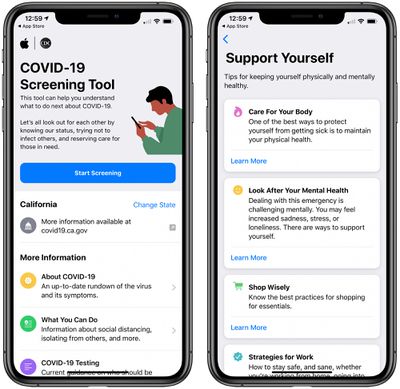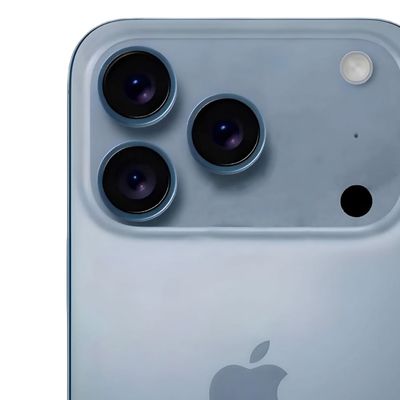Apple today introduced new features for its COVID-19 screening app, which is designed to help people stay informed and take the proper steps to prevent the spread of the coronavirus.The 2.0 version of the app adds a feature for selecting a state of residence to see specific guidance information from that state's health department, and it provides tips for keeping physically and mentally healthy.

Apple has also updated its accompanying COVID-19 website to provide the same information to users.
With the new state feature, users can choose their state to be directed to coronavirus guidelines offered by the state health department, and available information and guidelines will vary by location. In California, for example, Apple directs users to covid19.ca.gov, a website that provides dos and don'ts, symptoms to watch out for, emotional health resources, information about financial help, and more.
The update adds many self-care tips to both the app and website, such as staying hydrated, exercising for 30 minutes a day, getting adequate sleep, taking breaks for fun and relaxing activities, stimulating the brain through books, puzzles, or painting, talking to people, and journaling.
It provides shopping tips like purchasing two weeks of groceries at a time, stocking up on long-lasting foods, buying extra household items, and taking precautions such as wearing gloves and wiping down shopping carts.
Apple's site and app also offer tips on working from home, creating a household emergency plan, and what to do if you get sick.
Apple designed its COVID-19 app and website in partnership with the CDC, White House Coronavirus Task Force, and FEMA. Along with the features introduced today, the tools provided by Apple let users answer a series of questions on risk factors, recent exposure, and symptoms to receive CDC recommendations on the next steps that they need to take.
The screening tool is available to anyone who is 18 years or older in the United States. Data provided in the COVID-19 app and on the website is not shared with Apple, the CDC, or other government agencies.





















